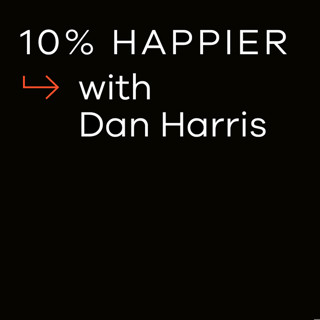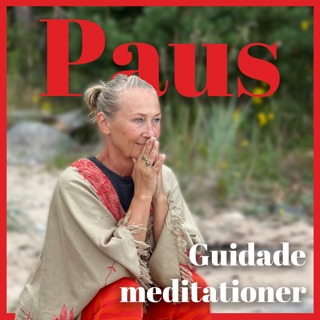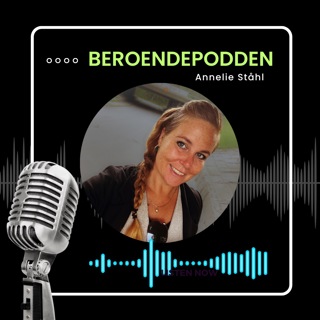
There’s No Part of Your Life You Can’t Make More Awesome | Jeff Warren
It is very easy to think about your meditation practice as being quarantined to those minutes when you’re dutifully sitting down with your eyes closed. But actually the point is to turn your whole life into a practice. Our guest Jeff Warren has a very broad, capacious understanding of the concept of practice. There’s formal meditation practice, but also: movement practice, work practice, relationship practice, sleep practice, art practice, and more. It’s really about the goal, which few of us will ever fully attain, of turning everything you do into something intentional and illuminating. Jeff Warren is a frequent guest and good friend to the Ten Percent Happier podcast and app. He co-wrote a book with Dan called Meditation for Fidgety Skeptics. He’s a longtime meditation teacher, and the founder of the Toronto-based Consciousness Explorers Club. He is also the cohost of an excellent new podcast, called The Consciousness Explorers Podcast. In every episode Jeff, and his co-host Tasha Schumann test out a new practice. Be sure to check it out. This episode explores: what it might mean to make your whole life a practice; how to connect with your baseline okayness; mindfulness of seeing; Koan practice; running as practice; being your own teacher; how (and why) to make your practice social; and practicing with ADHD, a condition with which Jeff has lived with for many years. Full Shownotes: https://www.tenpercent.com/podcast-episode/jeff-warren-421
23 Feb 202259min

The Elephant in the Meditation Room | Christopher Ford
Today’s episode is the culmination of a long search to find a countervailing force: a Buddhist Trump supporter. This search was born out of the Buddhist impulse to find the other side. What is talked about as cultivating non-attachment to views and also called “beginner’s mind.” As you will hear, after a lot of searching, we finally found our person. Christopher Ford is a longtime Republican who worked for Trump (albeit indirectly) at the State Department. Ford wrote a pair of fascinating and provocative articles for the Buddhist magazine Lion’s Roar. One was entitled, Zen and the Moral Courage of Moderation. The other was called, The Elephant in the Meditation Room. Christopher Ford is a lay chaplain in the Soto tradition of Zen Buddhism. His teacher is Roshi Joan Halifax, who has been on this show a couple of times and is herself a longtime progressive. From January 2018 until January 2021,he served at the state dept as Assistant Secretary of State for International Security and Nonproliferation. He’s also worked at the National Security Council, and as a congressional staffer. This episode explores: Ford’s argument for a Buddhist conservatism Ford’s experience in the Trump administration and his assessment of our current political state The personal tools Ford recommends using in day-to-day life, some of which go right to the issue of not being attached to our views Full Shownotes: https://www.tenpercent.com/podcast-episode/christopher-ford-420
21 Feb 202238min

The Good News About Your Inevitable Decline | Arthur Brooks
The unavoidable truth is that our skills change as we get older. We invest so much in our professional success, and then at some point, things change. But there’s good news. While certain abilities and mental capacities erode with age, others get stronger. With some foresight, planning, and good habits, you can make the second half of your life way better than the first. Arthur Brooks is the author of a new book called From Strength to Strength: Finding Success, Happiness, and Deep Purpose in the Second Half of Life. Arthur has seen the themes of this book play out in his own life. He started his career as a classical French horn player, then got his PhD in public policy analysis, and went on to run a think tank called the American Enterprise Institute. He then left that to be a professor at the Harvard Kennedy School and Harvard Business School. He also does work with The Atlantic , where he writes a column and hosts a podcast called How to Build a Happy Life. This episode explores: success addiction, and how to avoid it while still being successful; what it means to “live like Bach;” fluid intelligence vs. crystallized intelligence; what investments we can make now to increase the likelihood of more happiness later; the four most important habits of the happiest people; a workable definition of happiness; and how he feels about his own shifting capacities, having researched the subject for many years. Full Shownotes: https://www.tenpercent.com/podcast-episode/arthur-brooks-419
16 Feb 20221h 14min

How Not to Ruin Your Relationships | Drs. John & Julie Gottman
If you care about your long term health and happiness, the quality of your relationships is an area you should focus on. And the good news here is that love – as it applies to friends, family, and romantic partners – is not a factory setting, but instead a skill. Drs. John and Julie Gottman are the perfect guests to talk about how to cultivate good relationships in your life. World-renowned for his work on marital stability and divorce prediction, Dr. John Gottman has conducted over 40 years of breakthrough research with thousands of couples. He is the co-founder of The Gottman Institute and Affective Software Inc. as well as author of over 200 published academic articles and author or co-author of more than 40 books, including The New York Times bestseller The Seven Principles for Making Marriage Work. Dr. Julie Gottman is the Co-Founder and President of The Gottman Institute and Co-Founder of Affective Software, Inc. A highly respected clinical psychologist and author, she is sought internationally by media and organizations as an expert advisor on marriage, domestic violence, gay and lesbian adoption, same-sex marriage, and parenting issues. She is the co-creator of the immensely popular The Art and Science of Love weekend workshop for couples and she also co-designed the national clinical training program in Gottman Method Couples Therapy. This episode explores: how to talk (and listen) to your partner in moments of conflict; what to do before you start trying to solve a problem together; why “there’s no such thing as constructive criticism;” the details of John’s research findings, which have allowed him to predict with stunning accuracy whether a couple will get divorced; how the Gottmans themselves do when it comes to operationalizing their findings/advice; how and why betrayal occurs; when a couple should consider separating; the role mindfulness can play in healthy relationships; and the role of humor in relationships. Content warning: There are a few mentions of sensitive topics, most notably domestic violence, which Julie discusses for a few minutes towards the end of the interview. Full Shownotes: https://www.tenpercent.com/podcast-episode/john-julie-gottman-418
14 Feb 20221h 8min

Why I’m Not a Buddhist | Evan Thompson
This episode features Evan Thompson, author of the book Why I Am Not a Buddhist. Evan Thompson is a writer and professor of philosophy at the University of British Columbia in Vancouver. His work and research focuses on the nature of the mind, the self, and human experience combining cognitive science, philosophy of mind, phenomenology, and cross-cultural philosophy, particularly Asian philosophical traditions. This episode explores: Thompson’s beef with what he calls “Buddhist exceptionalism,” “Buddhist modernism,” and “neural Buddhism;” why Buddhism is so attractive in the Western world; our culture’s need for validation of meaning through science; McMindfulness and the Western obsession with individualism; the dialogue between science and Buddhism; what the Buddha meant by the word dukkha, or suffering; and Evan lays out his case for an alternative to Buddhist exceptionalism, which he calls “cosmopolitanism.” Full Shownotes: https://www.tenpercent.com/podcast-episode/evan-thompson-417
9 Feb 20221h 12min

Hinduism 101 | Swami Tyagananda
One of the most consistent requests we get from listeners is to explore non-Buddhist forms of meditation. That’s what we’re going to do with this episode. Our guest is Swami Tyagananda, who has been a Hindu monk since 1976, and is now the Hindu chaplain both at MIT and Harvard. This conversation explores: the basics of Hinduism, including its history, and its approach to prayer and meditation; letting go; karma; rebirth (and how and why to escape it); the deep connections between the Buddhist and Hindu traditions; Swami Tyagananda’s contention that all prayers are answered; and a recipe for reducing stress and anxiety. Swami Tyagananda also shares his thoughts about how to deal with our sense of not-enoughness or incompleteness and he provides a new way of thinking about the trickiest of all Buddhist concepts: annata, or the idea that the self is an illusion. Full Shownotes: https://www.tenpercent.com/podcast-episode/swami-tyagananda-416
7 Feb 20221h 5min

Why Self-Hatred Makes No Sense | Matthew Brensilver
This episode, with Matthew Brensilver, explores a compelling Buddhist question: does self-hatred, or self-love, make sense if the self is an illusion? Matthew Brensilver, PhD, is a clinical social worker and experienced teacher of meditation retreats. He also worked at an organization called Mindful Schools, which teaches teachers how to teach meditation. This episode also explores: how and why to view your anger with skepticism; the relationship between self-love and personal ethics; what to do if you think you’re a good person but have no interest in changing your behavior to get better; how to handle a nagging sense of moral un-justifiability; and how Matthew has arrived at a place of relative peace with his own mortality. Full Shownotes: https://www.tenpercent.com/podcast-episode/matthew-brensilver-415
2 Feb 20221h 1min

What We Can Learn About Happiness from Babies | Alison Gopnik
Dr. Alison Gopnik is a psychologist at UC Berkeley and one of the world’s leading experts in cognitive development. She is also the author of several books, including The Philosophical Baby and The Gardener and the Carpenter. This episode with Dr. Gopnik explores two big and fascinating themes. The first is enlightened self-interest. We all want to be happy. Every sentient being has that in common. One of the most successful, although counterintuitive, strategies for getting happier is to get out of your own head and help other people. Alison argues that caring is a skill that we can all develop, and there are ways to scale it so that we can improve our entire society. The second, and related theme, explores what we can all learn about happiness from babies. In this episode Alison discusses: the “learning trap” common to adults that four-year-olds can help us avoid; the potential role of meditation in helping us see the world and solve problems more like children; the difference between our spotlight attention and children’s lantern consciousness; the strategy of solving problems by not trying to solve problems; and her critique of our modern conception of parenting, and what she thinks should replace it. Full Shownotes: https://www.tenpercent.com/podcast-episode/alison-gopnik-414
31 Jan 20221h 6min





















